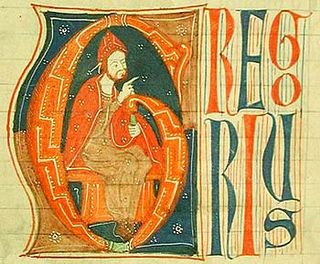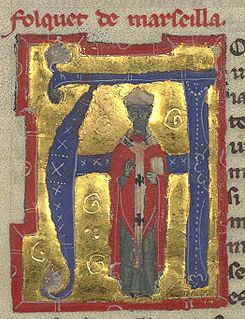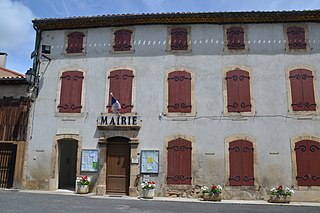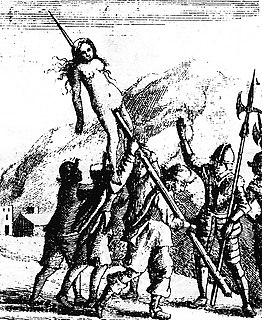Catharism was a Christian dualist or Gnostic movement between the 12th and 14th centuries which thrived in Southern Europe, particularly in northern Italy and southern France. Followers were described as Cathars and referred to themselves as Good Christians, and are now mainly remembered for a prolonged period of religious persecution by the Catholic Church, which did not recognize their unorthodox Christianity. Catharism arrived in Western Europe in the Languedoc region of France in the 11th century. The adherents were sometimes referred to as Albigensians, after the city Albi in southern France where the movement first took hold. The belief may have originated in the Byzantine Empire. Catharism was initially taught by ascetic leaders who set few guidelines and so some Catharist practices and beliefs varied by region and over time. The Catholic Church denounced its practices, including the consolamentum ritual by which Cathar individuals were baptised and raised to the status of "Perfect".

The Inquisition was a group of institutions within the Catholic Church whose aim was to combat heresy, conducting trials of suspected heretics. Studies of the records have found that the overwhelming majority of sentences consisted of penances, but that cases of repeat unrepentant heretics were handed over to the secular courts, which generally resulted in execution or life imprisonment. The Inquisition had its start in 12th-century Kingdom of France, with the aim of combating religious deviation, particularly among the Cathars and the Waldensians. The inquisitorial courts from this time until the mid-15th century are together known as the Medieval Inquisition. Other groups investigated during the Medieval Inquisition, which primarily took place in France and Italy, including the Spiritual Franciscans, the Hussites, and the Beguines. Beginning in the 1250s, inquisitors were generally chosen from members of the Dominican Order, replacing the earlier practice of using local clergy as judges.

The Medieval Inquisition was a series of Inquisitions from around 1184, including the Episcopal Inquisition (1184–1230s) and later the Papal Inquisition (1230s). The Medieval Inquisition was established in response to movements considered apostate or heretical to Roman Catholicism, in particular Catharism and Waldensians in Southern France and Northern Italy. These were the first movements of many inquisitions that would follow.

Peter Waldo was the leader of the Waldensians, a Christian spiritual movement of the Middle Ages.

The Albigensian Crusade or the Cathar Crusade was a 20-year military campaign initiated by Pope Innocent III to eliminate Catharism in Languedoc, in southern France. The Crusade was prosecuted primarily by the French crown and promptly took on a political aspect, resulting in not only a significant reduction in the number of practising Cathars, but also a realignment of the County of Toulouse in Languedoc, bringing it into the sphere of the French crown, and diminishing both Languedoc's distinct regional culture and the influence of the counts of Barcelona.

The Waldensians, Vallenses, Valdesi or Vaudois) are adherents of a church tradition that began as an ascetic movement within Western Christianity before the Reformation.
Bogomilism was a Christian neo-Gnostic or dualist sect founded in the First Bulgarian Empire by the priest Bogomil during the reign of Tsar Peter I in the 10th century. It most probably arose in what is today the region of Macedonia.

Folquet de Marselha, alternatively Folquet de Marseille, Foulques de Toulouse, Fulk of Toulouse came from a Genoese merchant family who lived in Marseille. He is known as a trobadour, and then as a fiercely anti-Cathar bishop of Toulouse.

Raimond Roger was the sixth count of Foix from the House of Foix. He was the son and successor of Roger Bernard I and his wife Cécilia Trencavel.

Puivert is a commune in the Aude department in the Occitanie region in southern France.

Antonin Gadal was a French mystic and historian who dedicated his life to study of the Cathars in the south of France, their spirituality, beliefs and ideology.

Guardia Piemontese is a town and comune in the province of Cosenza and the region of Calabria in southern Italy.
Gundolfo or Gundulf was a teacher of heretical Christian doctrines in the early 11th century. Of Italian origin, he turned up in the bishopric of Cambrai-Arras in northern France in 1025 when Bishop Gerard of Florennes discovered that there were heretics in the diocese.

Henry of Marcy, or Henri de Marsiac, was a Cistercian abbot, first of Hautecombe in Savoy (1160–1177), and then of Clairvaux, from 1177 until 1179. He was created Cardinal Bishop of Albano by Pope Alexander III at the Third Lateran Council in 1179.
Durand of Huesca was a Spanish Waldensian, who converted in 1207 to Catholicism.

Guillem or Guilhem Figueira or Figera was a Languedocian jongleur and troubadour from Toulouse active at the court of the Emperor Frederick II in the 1230s. He was a close associate of both Aimery de Pégulhan and Guillem Augier Novella.
There were three troubadours named Isarn or Izarn, and who are difficult to distinguish completely today. The first has no surname and composed two partimens with Rofian around 1240. He has been confounded with the inquisitor Isarn.

The Massacre at Béziers was the slaughter of the inhabitants during the sack of Béziers, an event that took place on 22 July 1209, and was the first major military action of the Albigensian Crusade.

The Savoyard–Waldensian Wars were a series of conflicts between the community of Waldensians and the Savoyard troops in the Duchy of Savoy from 1655 to 1690. The Piedmontese Easter in 1655 sparked the conflict. It was largely a period of persecution of the Waldensian Church, rather than a military conflict. Joshua Janavel (1617–1690) was one of the Waldensian military leaders against the Savoyard ducal troops.

Proto-Protestantism, also called pre-Protestantism, refers to individuals and movements that propagated ideas similar to Protestantism before 1517, which historians usually regard as the starting year for the Reformation era. The relationship between medieval sects and Protestantism is an issue that has been debated by historians.














